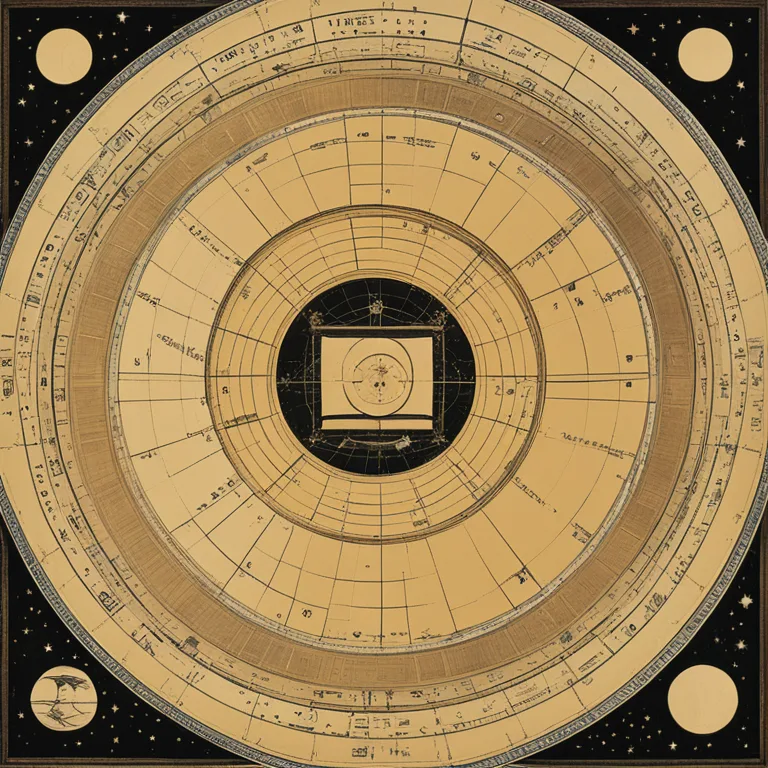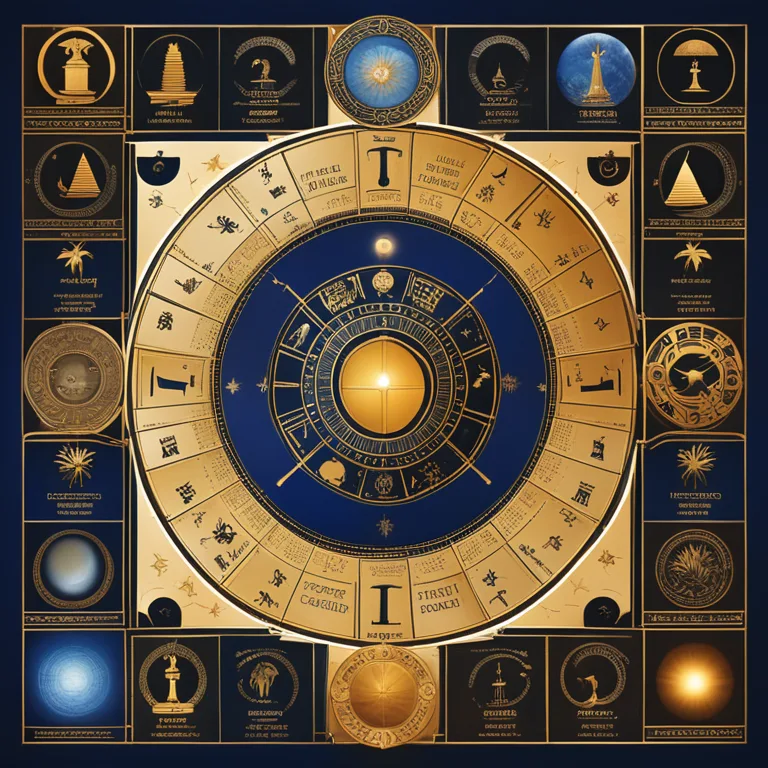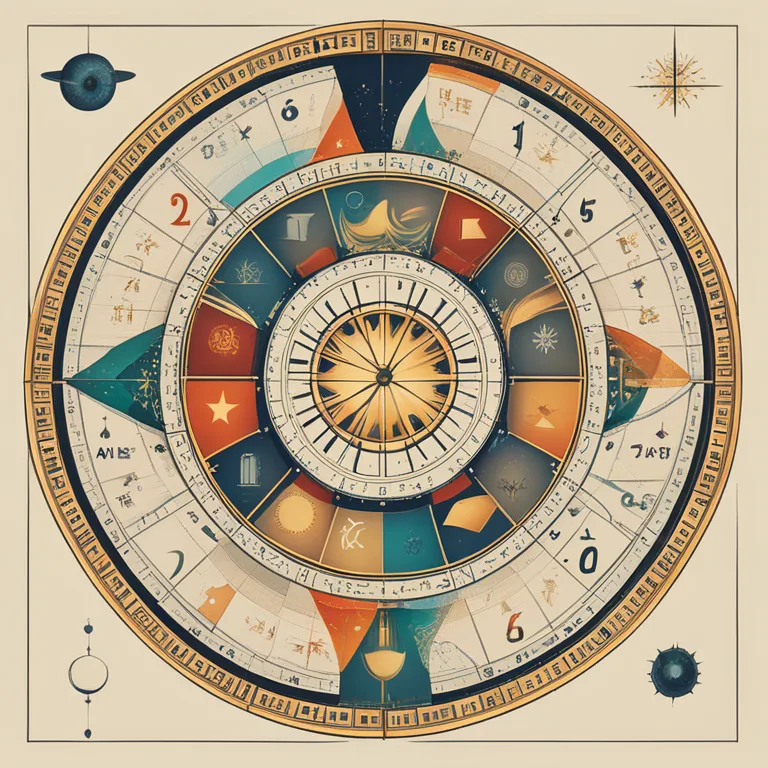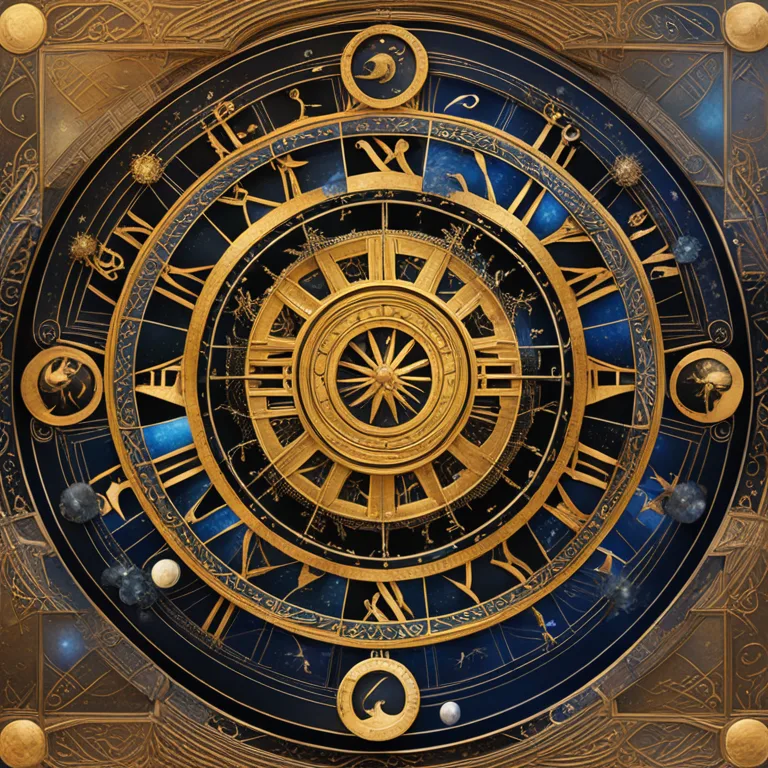
The Origins of Astrology Signs
Delve into the historical and astronomical roots of the zodiac signs that form the foundation of astrology as we know it today.
article by Priya Deshmukh
The Astrological Foundation
Astrology rests on the belief that celestial bodies influence human affairs and natural phenomena. Its practice dates back thousands of years, intertwining with the histories of several ancient civilizations. Astrology's most visible aspect, the zodiac signs, stems from a time when humans began to draw connections between their lives and the positions of the stars and planets. The zodiac – a celestial belt divided into twelve segments – corresponds to twelve specific constellations recognized by ancient astronomers.

Unpacking the Zodiac Wheel
The zodiac wheel is an imaginary band in the sky through which the Sun, Moon, and planets appear to move. This band is divided into twelve sections, each associated with a constellation and a corresponding zodiac sign. The origins of the zodiac signs can be traced back to the Babylonians in the 2nd millennium BC, who applied mythological stories to the constellations, resulting in the creation of the zodiac's twelve signs.

The Growth and Spread of Astrological Knowledge
Astrology's framework, constructed by the Babylonians, was later adopted and modified by the Greeks and Egyptians, who added their own interpretations and symbolism to the signs. This merging of astrological understanding saw the integration of deities, planets, and elemental associations to the previously established system. As centuries passed, the signs absorbed cultural nuances and developed individual associations and attributes reflective of the societies that embraced them.

The Timeless Nature of Astrology
Despite scientific advancements and changing worldviews, astrology has maintained a significant presence in popular consciousness. Moving into the future, the signs of the zodiac continue to provide guidance and perspective for many. As we approach 2024 and beyond, astrologers interpret the signs with a blend of ancient wisdom and contemporary insight, composing horoscopes that mirror the eternal human search for meaning and connection in the cosmos.

Modern Astrology and Technological Influence
In the modern era, advancements in technology have affected how we interpret and utilize astrology. The use of precise astronomical software allows astrologers to construct highly accurate natal charts, and the internet provides a platform for sharing daily, monthly, and yearly forecasts. With the advent of the 21st century and the onset of the digital age, astrology finds itself in a unique space – grounded in ancient knowledge but accelerated by modern tools.
The Impact on Society
Astrology continues to influence social and cultural contexts, offering an intriguing perspective that many find invaluable in their personal lives. Its signs epitomize the diversity in human character and experiences, forging a timeless connection between our past and our future. As individuals venture to understand their place within the universe, astrology's signs offer a celestial guide that has traversed through generations and will likely persist for many more to come.
Published: 12/29/2023
Modified: 12/29/2023
More predictions
Come back here soon to learn more about yourself and your future


Love Compatibility Through Astrology
Discover how astrology guides love compatibility, building deeper connections using the stars' wisdom.


Astrology Signs Compatibility Guide
Discover which astrology signs are most compatible for love and friendships in this comprehensive compatibility guide.


Moon's Zodiac Position Today
Discover which astrological sign hosts the Moon today and learn how this celestial body influences your daily horoscope, emotions, and compatibility.